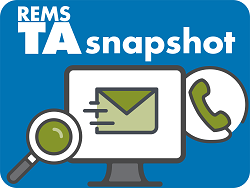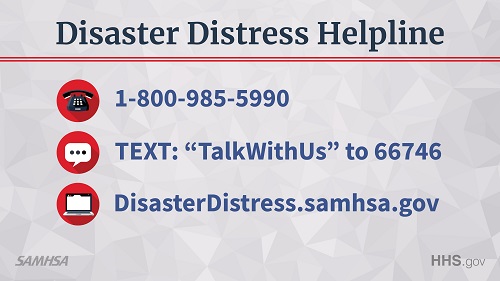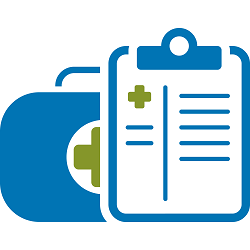

Ensuring the Resilience and the Well-Being of School Personnel,
Students, and Families During and After the Pandemic
Across the United States, school communities and the education agencies that support them, along with their community partners, have risen to the occasions and responded to the challenges of the coronavirus disease 2019 (COVID-19) pandemic. Educators and faculty have transitioned to distance education, school nutrition staff have prepared and ensured continued food services, bus drivers have delivered meals and more to students and families, school resource officers have conducted wellness checks, administrators have stepped in to fill capacity gaps, and so much more. Most importantly, they have worked together to help ensure continued engagement of their school community, all aimed at health, safety, and resilience. The U.S. Department of Education’s (ED) Office of Safe and Supportive Schools (OSSS) and its REMS TA Center sincerely thank you for your continued service to your communities during this challenging time.
 Equally as important, we encourage you to consider the trauma and stress caused by the pandemic, as well as its long-lasting effects on your whole school community, including students, staff, families, and partners. Health and social, emotional, and psychological well-being is a core component before, during, and after possible emergencies, including prevention, response, continuity of operations, and recovery planning. School safety teams and leaders can address trauma and stress in their school emergency operations plans (EOPs), implementation of Psychological First Aid (PFA), and provision of trauma-informed care to educators, school personnel, students, and the whole school community. To support education agencies in addressing this topic and building their resilience and well-being programs, the REMS TA Center offers online trainings and resources on this critical topic. Find our free products, as well as those from Federal partners, below to supplement your school safety leadership efforts.
Equally as important, we encourage you to consider the trauma and stress caused by the pandemic, as well as its long-lasting effects on your whole school community, including students, staff, families, and partners. Health and social, emotional, and psychological well-being is a core component before, during, and after possible emergencies, including prevention, response, continuity of operations, and recovery planning. School safety teams and leaders can address trauma and stress in their school emergency operations plans (EOPs), implementation of Psychological First Aid (PFA), and provision of trauma-informed care to educators, school personnel, students, and the whole school community. To support education agencies in addressing this topic and building their resilience and well-being programs, the REMS TA Center offers online trainings and resources on this critical topic. Find our free products, as well as those from Federal partners, below to supplement your school safety leadership efforts.
Resilience Quick Links for School Personnel, Families, and Students: Ensuring the Well-Being of the Whole School Community During School at Home
This Technical Assistance (TA) Snapshot gives school safety teams and school personnel, families, and students key practical steps and quick links to learning opportunities and resources on resilience and well-being in the context of a pandemic and other emergency events. School personnel can use it to support themselves, their colleagues, their students, and their families; parents can use it to support themselves and their children; and students, with their families, can use it to support themselves and their peers. Download this new TA Snapshot.
TA Snapshots
 The REMS TA Center is pleased to introduce a new type of publication: TA Snapshots. We continually respond to direct requests from school administrators and staff, district administrators, state education agency and regional education agency personnel, educators, parents, students, school safety leaders, and community partners on a variety of topics within school safety, security, emergency management, and preparedness. Such inquiries have resulted in the creation of TA responses and snapshots. Find a list of our more popular TA Snapshots on our Publications & Guidance Documents Web page.
The REMS TA Center is pleased to introduce a new type of publication: TA Snapshots. We continually respond to direct requests from school administrators and staff, district administrators, state education agency and regional education agency personnel, educators, parents, students, school safety leaders, and community partners on a variety of topics within school safety, security, emergency management, and preparedness. Such inquiries have resulted in the creation of TA responses and snapshots. Find a list of our more popular TA Snapshots on our Publications & Guidance Documents Web page.
Disaster Distress Helpline
The Substance Abuse and Mental Health Services Administration maintains a free national hotline for people who are experiencing emotional distress related to an emergency event, such as COVID-19. The Disaster Distress Helpline provides free counseling and support 24/7 before, during, and after an emergency and can be contacted in the following ways: call 1-800-985-5990 or text “TalkWithUs” to 66746.

Implementing PFA
PFA is an evidence-informed intervention model designed to reduce the initial distress and trauma caused by emergencies as well as help people cope and return to their “normal” activities. Read more about Psychological First Aid for Schools (PFA-S) and Psychological First Aid (PFA) in our at-a-glance versions of the Guide for Developing High-Quality School Emergency Operations Plans and Guide for Developing High-Quality Emergency Operations Plans for Institutions of Higher Education. Use the online training opportunities and resources below to learn more about PFA and how can you implement the model to support the whole school community.
- Webinar: Psychological First Aid: Addressing Mental Health Distress During Disasters | U.S. Centers for Disease Control and Prevention (CDC). Learn online about PFA and online resources and trainings available on the topic. This Webinar was hosted by the CDC’s Emergency Partners Information Connection.
- Webinar: Implementing Psychological First Aid (PFA) in School and Postsecondary Settings | REMS TA Center. Learn online about PFA, its role during and following an emergency, and implementation strategies for its use in both the K-12 and the higher education settings.
- 10 Tips for Teaching the Psychological First Aid Model for K-12 Education Agencies | REMS TA Center. Read about the PFA model, its core elements, and 10 tips to support its implementation before, during, and after emergency events.

- Psychological First Aid (PFA) for Students and Teachers: Listen, Protect, Connect—Model & Teach | REMS TA Center. Read this publication on the use of PFA in schools and the strategy “Listen, Protect, Connect—Model & Teach,” including its goals, how schools can implement it, developmental concerns, and staff training considerations.
- Listen, Protect, Connect Model & Teach: Sample Dialogue | REMS TA Center. Explore words to say and not to say while implementing “Listen, Protect, Connect—Model & Teach” in a possible scenario.
- Resources Supporting Implementing Psychological First Aid in School and Postsecondary Settings | REMS TA Center. Use this supplemental reading list to access more resources on PFA, trauma services, and coping after an emergency event.
Providing Trauma-Informed Care
Living through traumatic events like the COVID-19 pandemic changes the ways of the “self” and how we experience the world around us. Teachers are critical to recognizing the signs of traumatic stress and helping students and their families regain a sense of normalcy, which can sometimes also facilitate personal “growth” across the school community. Schools can use a trauma-informed approach in promoting resilience, creating stability, and reinforcing routines during school at home that promote student success and offer positive engagement opportunities. Use the online training opportunities and resources below to learn more about trauma-informed care and leading a trauma-informed school.
- Webinar: Trauma-Informed Care for Schools Before, During, and After Possible Emergency Events | REMS TA Center. Learn online about trauma and retraumatization, manifestations of trauma in students, strategies for implementing a trauma-informed approach, and planning considerations for how schools can integrate trauma in their EOPs.
- Resources on Trauma-Informed Care for Schools Before, During, and After Possible Emergency Events | REMS TA Center. Use this supplemental reading list to access more resources on trauma and trauma-informed schools; educator resilience and self-care; social, emotional, and behavioral recovery planning; and PFA.
- Training Package: Leading Trauma-Sensitive Schools | National Center on Safe Supportive Learning Environments. Use these materials to train your colleagues on adopting a trauma-sensitive approach.

- Creating, Supporting, and Sustaining Trauma-Informed Schools: A System Framework | The National Child Traumatic Stress Network (NCTSN). Read about a framework that helps schools and their community partners create a trauma-informed school environment, which includes a tiered approach for providing support to students.
- Child Trauma Toolkit for Educators | NCTSN. Read about how to work with traumatized children in the school system and the psychological and behavioral impact of trauma on elementary school, middle school, and high school students.
Enhancing School EOPs
EOPs help keep schools safe every day and are critical if an emergency occurs. Actual emergencies often provide new information that can be used to inform EOPs. Pandemics and infectious disease outbreaks highlight the need to continually review and update your Public Health Annex with community partners (e.g., community planning teams, public health officials). While we are currently in the response and continuity of operations phase of the COVID-19 pandemic, education agencies are also encouraged to review and potentially update their Recovery Annexes with their community planning teams. Use the online training opportunities and resources below to learn more about the Public Health and Recovery Annexes.
- Online Course: School EOPs In-Depth: Developing a Bereavement and Loss Annex | REMS TA Center. Learn online about common manifestations among children related to bereavement and loss and how to include plans for responding to and supporting children and youth in bereavement and loss in a comprehensive school EOP.
- Specialized Training Package: Developing a Recovery Annex | REMS TA Center. Use these materials to train your colleagues on the Recovery Annex and its contents and concrete steps for integrating the development of a Recovery Annex into a comprehensive school EOP. This package contains a tabletop exercise.
- Specialized Training Package: Responding to Bereavement and Loss | REMS TA Center. Use these materials to train your colleagues on the developmental factors in children and adolescents that may impact bereavement and the need to outline protocols and procedures that will be followed prior to, as well as after, an emergency event.

- Webinar: Planning to Recover From Emergencies at Districts and Schools | REMS TA Center. Learn online about how K-12 schools and school districts can better plan to recover from emergency events and be ready for a range of threats and hazards.
- Supporting Efforts to Create a Public Health, Medical, and Mental Health Annex as a Part of Your Emergency Operations Plan | REMS TA Center. Access resources from the REMS TA Center, ED, and Federal agency partners on the topic of public health, medical, and mental health within K-12 schools and institutions of higher education.
- Recovery for Schools and School Districts | REMS TA Center. Read this fact sheet for information on the timeframes and four components of recovery, examples of recovery activities, and how to integrate recovery efforts into emergency planning.
